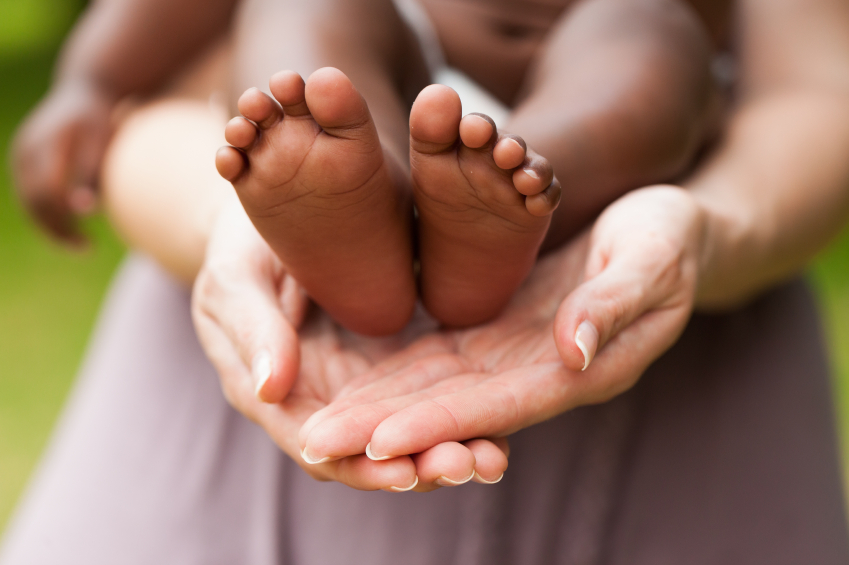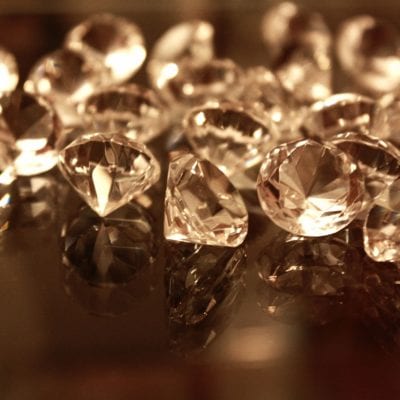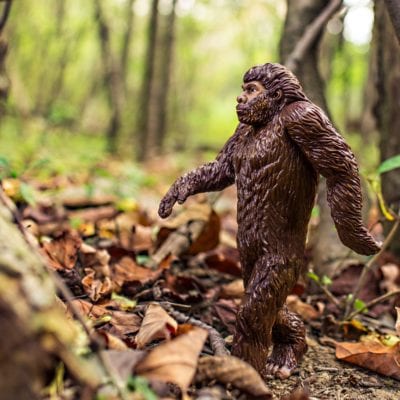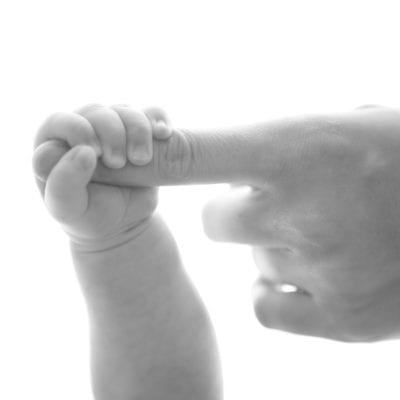One Family’s Quest for International Adoption
I’d like to say that what brought my husband and I to the world of international adoption was a deep and pure philanthropic urge to do good in our oft dark and bleak world. To give a child a better life, to raise one little head above the parapet of poverty and whisk it to the safe haven of our home, our adopted country of Spain, our family.
But, if I said that, I would be lying.
We arrived at the start line of the long and often arduous road of adoption, like many many other couples, after our marathonesque quest for a child of our own. We had tried the normal way, we had tried the not-so-normal way. We had endured the months of waiting for the time to be right, the prodding and poking at numerous doctors appointments, the excitement and thrill of seeing our offspring through a microscope in their primordial state and then willing them to hang on in there quite literally for dear life. More waiting and then the gut-wrenching disappointment of the big fat negative result. Another five grand down, another five kilos heavier and another six months gone.
Of course during this time, as if being barren isn’t enough, it seems like every female you know is either pregnant or cooing over their perfect little bundles. Even those friends who have had trouble conceiving, once in the proverbial club, will unwittingly become one of the “we only have one subject to talk about” club. I have sat like a deaf mute at many a barbeque surrounded by women who are trying to outdo each other with horrific pregnancy or birth tales, the trials of breast or evils of bottle and of course the endless discourse about what arrives into the nappy on a daily basis – this topic alone can keep them going for years!
Infertility affects about 1 in 8 couples in the UK and for a woman such as myself who is used to getting her own way (I’m not spoilt, more determined) the feeling of not being in control was hugely frustrating. Of course, everyone thinks it is their business to enquire “when are you two going to start a family?” or “wouldn’t you like your own child?” and this combined with the stress, strain and heartache of it all means you feel more and more isolated. After three unsuccessful IVF cycles, our fourth was with egg donation and ended in a pregnancy – yay! That ended seven weeks later in a miscarriage and at that point, I knew I could take no more and jumped from the IVF ship.

As I had already gone through the necessary change in mindset from biological to non-biological offspring with egg donation, making the jump to adoption wasn’t too much of a leap. For my husband though, adoption and coming to terms with it was a lot harder. We went round and round and for a time I thought we wouldn’t make it – how would I ever continue in our relationship if he vetoed my only chance at motherhood? Equally I didn’t want to issue ultimatums. In the end though, he came around, we visited an orphanage, we spoke to adoptive parents and adopted people. We talked about what it would mean for us as a couple, what it would mean to his existing biological daughter (at that time ten years old), for our families etc. We decided to move forward and begin the process. We were on the road.
If infertility is like being locked in a glass box dying of thirst while everyone is showing you their wonderful glasses of water from the other side, then international adoption is like leaping out of that box and finding yourself on an ever shifting patch of sand. The agreements between countries are often affected by political wrangling that has nothing to do with adoption and doors open and then slam shut on a regular basis. Once you decide to adopt there are only so many countries you can adopt from. For many when they think about adoptions from foreign countries, the images of Angelina clutching little Maddox from Cambodia or Madonna battling with the paps bringing the startled David from Malawi. Of course the media lap up these stories and give the public an extremely skewed view of international adoption. It makes me smile when people say to me “oh yeah, we’re thinking to adopt a baby – we already sponsor one in India”! As if it’s as easy as simply saying the word, choosing a country, quick visit, pick a cute one and bring it back. Not so. The world of international adoption is long, hard and often strewn with obstacles that you’d never even thought of.
As we live in Spain and had travelled a lot in Morocco, we had decided we wanted to adopt a child from there. We contacted a lawyer who we knew to be linking Spanish couples with children in an orphanage there and she told us there were two baby boys awaiting assignation. Within days, we were on a plane. We were lucky. For many, once approved, it can still be months and even years before an adoption takes place, especially for single parent adoptions.

It took two years to complete the process in Spain – interviews, psychometric testing, home visits, more interviews, but finally we were awarded our approval papers. Armed with those we hotfooted it to Morocco and there on a sunny May day, I found myself looking down at a pair of enormous, dark brown eyes which just locked on mine. He looked at me as if he knew, knew that this was meant to be, we were meant to be. I felt it too and tears streamed down my face as I realised that finally my wish had come true – I was holding my baby and, biological or not, I could not love another human being more. My son. He was a day under three months old and the most perfect thing I had ever seen in my life. We’d done it. We’d arrived at destination BABY!
We moved to Morocco two weeks later so that we could visit our son every day – establishing a strong bond was paramount in my mind and I just couldn’t, wouldn’t, be parted from him. After a month of living there and visits which got harder and harder – try placing your screaming baby in a cot in a room with 26 others and walking away for the entire night – we were awarded a provisional care order and we were allowed to bring him back to our temporary apartment in Morocco while we awaiting the final sign off. Again, a stroke of unusual good luck.
But then road became bumpy and rocky. Morocco put a halt on all foreign adoptions and denied all applications in the courts. We were stuck. We spent a total of 15 months in Morocco and although ecstatic to have our son with us, emotionally it was probably one of the hardest times in my life.

I had left the orphanage with my son carrying only a piece of paper which outlined his brief medical history and took him back to our temporary Moroccan home having never looked after a small baby. This is true of all new parents but the difference with adoption is that although you have to jump through myriad hoops, no one actually tells you how to do it. In Morocco we were alone – no family, no friends to speak of, no health workers or home visits – it was isolating to say the least. I felt like I should be elated ALL the time and felt terribly guilty if I didn’t. I’ve since learnt that PAD (Post Adoptive Depression) is a real and well documented condition and looking back I think I suffered a bit from it. But how can you admit to anyone that you feel depressed when you have the one thing you have been craving for years?
The emotional roller coaster continued with a series of setbacks and there were times when we thought we would lose him. We clung onto the fact that we were together – we had some amazing times during our stay in Morocco, don’t get me wrong, but never knowing which way the sand was going to shift or whether we’d all just fall through it was wearing. Eventually though, we made it through the bureaucratic behemoth that became our particular story and we brought him home to Spain, our bouncing baby boy.
We thought we had a clear run from then on, but no.
Our son is black. My husband and I are white. Without a doubt we were naïve about race and colour and the challenges ahead of us. Like many middle-class white people we truly believed that we would be seen as all the same, we are all the same on the inside and therefore no different to any other family. How wrong we were. When you see the world through mixed race eyes, you see it in all its ugliness.

We can all recognise blunt racism but I am now super attuned to the “micro-aggressions” which many people pepper their conversation with, most of the time not even realising they have said anything. I certainly wasn’t prepared for my son to be pushed to the ground by a group of six year olds (he was four) kicking him and shouting “Moro” (a derogatory Spanish term for the Moors) at him. He had no clue as to what had happened. It made me weep to think that racism can be so ingrained in those so young. Without a doubt it is a much tougher world out there if you are mixed race but in today’s world perhaps growing that extra skin isn’t such a bad thing.
People react in different ways when they meet us and meet our son. We are quite used to getting stared at and how people react can be pretty much divided into types…
- The gusher: this person doesn’t really know what to say – they want to ask questions but are too embarrassed so gush about how gorgeous my son is, how lucky he is, what an amazing thing we have done etc etc. I try to steer the conversation away as soon as possible. A common comment from the gusher is “oooh, I want one” or “oooh can I take him home with me?”!
- The nosy: this person thinks that for some reason they have the right to know intimate details about our situation and will unashamedly ask questions about my son’s biological parents, how he came to be in an orphanage, how much we know about his history etc. It can sometimes be hard as often these questions are asked in front of my son. I now simply say that his history is exactly that – his and is not really anyone’s business.
- The racist: Oh, they may not be wearing their Klu Klux Klan outfits but they are out there believe me. I am now way more tuned in to the type of micro-aggressive comments that people of colour have to face on a daily basis. Here in Spain they will think nothing of calling my son “morenito” (literally translated as Darkie) to his face, as will a friend who tells me that “they mean nothing by it”.
- The expert: this person thinks that because I am an adoptive parent, they are duty bound to pass on their superior parenting tips. Always delivered in a passive aggressive “helping hand” way, the insidiousness of it quite frankly makes me want to scream and then bash their heads in!
Being an adopted parent is not easy – we face challenges that ‘normal’ families do not. Challenges that are always evolving as our children grow up. What they have the capability to understand and when is something we have to keep pace with. We know that as the years go by, our son will begin to understand more about why he looks different from us and what makes him different from other children – we never shy away from the subject of adoption or race in our home and it is discussed openly and freely. When the time comes that he is more curious, I want him to feel he can come to me and ask me anything. Thankfully, long gone are the days when adoption was a dirty word and news passed on in a brown envelope on 18th birthdays. Today, the family in all its myriad forms is what counts – the love shared.
I may not be Angelina or Madonna and our road may not have begun as a deep seated desire to make a difference, but I know now that we have done a good thing. Undoubtedly my son’s life will be better with us than had he grown up in care in Morocco – but more than that, he has given us a better life. Regardless of the journey we all take to become parents – every sacrifice and every sleepless night, whether caused by a new-born’s cries or the terror of yet more paperwork – we all get there in the end. We just took a longer route.
This article is dedicated to all those who are still striving to make their wish come true – my advice – don’t ever give up. Do whatever it takes, stay strong and you will find your road and you will reach the end.
Note from The Editor… Thank you to our Anonymous Guest Writer for sharing her brave story with us. If you would like more information about adopting a child from abroad visit SOS Children’s Village.
Have you struggled with adoption, surrogacy or infertility? Maybe you yourself were adopted and have a story you want to share?
At The Glass House we are determined to shed light on the stories that matter. If you have a story you want people to hear, drop us an email at submissions@theglasshousegirls.com. You never know how much your story could help others.








